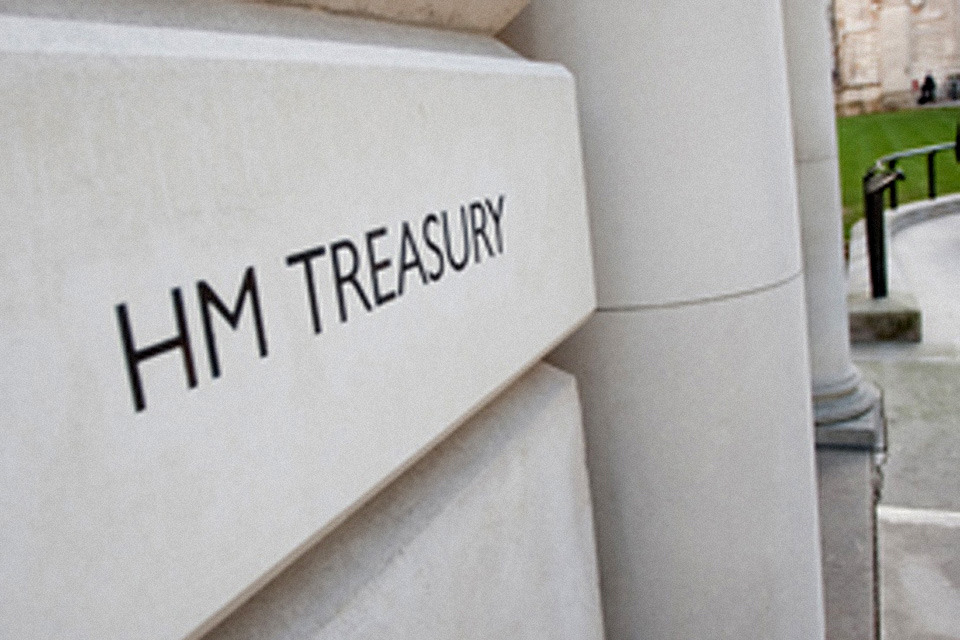Updated 1 min read
Chancellor Rachel Reeves has announced further cuts to welfare benefits but no tax rises as the Office for Budget Responsibility (OBR) halved its forecast for UK economic growth in 2025.
She told MPs: "I am not satisfied with these numbers, and that is why we on this side of the house are serious about taking the action needed to grow our economy, backing the builders, not the blockers, with a third runway at Heathrow Airport … increasing investment with reforms to our pension system and a new national wealth fund.
"That is a serious plan for growth. That is a serious plan to improve living standards."
Key announcements included:
How it happened:
LIVE COVERAGE IS OVER 37 updates
Rachel Reeves is rumoured to be planning an extension of the freeze on income tax thresholds in her spring statement.
One way the government uses to increase its income tax revenues without actually raising the tax is by freezing the thresholds.
This phenomenon is known as "fiscal drag", as more taxpayers are "dragged" into paying tax, or paying at a higher rate as wages rise, even if they aren't feeling the benefit of their pay rises due to inflation.
Critics of this practice have described it as a "stealth tax", with the head of pensions and savings at Interactive Investor, Becky O’Connor, describing freezing allowances as a "backhanded way of raising taxes".
According to the IFS, only 3.5% of adults in the UK paid the 40% higher rate in 1991-92. "By 2022–23 11% were paying higher rates, with that figure set to reach 14% by 2027–28," the institute said in 2023.
Jacob Falkencrone, head of investor content at Saxo, said the welfare cuts are a stark warning for under 40s to secure their future:
Cabinet ministers are arriving in Downing Street to hear Rachel Reeves brief them on the spring statement.
Here are some of the arrival shots:
The UK inflation rate fell to 2.8% in the year to February, in a boost to chancellor Rachel Reeves as she prepares to deliver a high-stakes spring statement.
The latest figures from the Office for National Statistics (ONS) come as Reeves is set to outline more than £10bn of spending cuts in an attempt to repair a hole in the public finances caused by anaemic growth and higher borrowing costs.
Economists had expected inflation to remain unchanged, having jumped from 2.5% in December to 3% in January.
A group of public health experts said further cuts to social security could lead to deaths.
Writing in the British Medical Journal (BMJ), they said the reforms, coming after years of austerity, would have a detrimental effect on already-vulnerable people.
One of the group, Professor Gerry McCartney – a specialist in wellbeing economy at the University of Glasgow, said: “There is now substantial evidence that cuts to social security since 2010 have fundamentally harmed the health of the UK population.
Read more: What the key universal credit changes mean for your benefits payments
“Implementing yet more cuts will therefore result in more premature deaths. It is vital that the UK government understands this evidence and takes a different policy approach.”
The government has pledged to invest an additional £1bn-a-year by 2029/2030 to help support people into work including through one-to-one help and said it will protect disabled people who will never be able to work by scrapping the need for them to have benefits reassessments.
Rachel Reeves needs to use her spring statement announcement to signal "a bit of a reset" for the UK government's economic approach, according to former chancellor George Osborne.
Speaking at the HSBC Global Investment Summit in Hong Kong today, Osborne argued that the current government had struggled to convey a clear, pro-business message until recently. “The Government didn’t get off to the best of starts but they had a lot of goodwill,” he told Bloomberg TV. “They inherited a lot of problems but the result is, at summits like this, on the other side of the world there is quite a negative sentiment about the UK and that needs to be changed.”
Osborne said that Reeves had a crucial opportunity to "cement some of the good work of recent weeks" and reassure international investors that the government is committed to a pro-business agenda. He underscored that it is essential for the UK to present a cohesive economic plan. "Plan beats no plan. I don’t think at the moment people here sense that the UK has a clear direction that it’s heading in," he said.
While acknowledging that Reeves may point to the challenges of addressing the UK's financial deficits, Osborne argued that the government had failed to project a robust pro-business stance until very recently.
"Rachel Reeves would say, ‘Well, I had a black hole to fill and I’ve had to fix various problems.’ Maybe, maybe not. But’s what true is the Government has not until quite recently given an unbashedly pro-business or pro-enterprise message. If anything it has been raising taxes on business and pushing entrepreneurial and wealth people away.”
Charities and health experts have warned welfare cuts could risk lives, as the government prepared to publish an official impact assessment into how many people will be affected by its plans.
Prime minister Keir Starmer has described the current welfare system as “morally indefensible”, insisting Labour’s reforms will help those who can work to get jobs.
It is now expected further cuts to welfare will be announced as chancellor Rachel Reeves delivers her spring statement on Wednesday, after the budget watchdog said the government’s plans will not save as much as ministers hoped. A tightening of eligibility for the main disability benefit, known as the personal independence payment (Pip), and cuts to the health element of universal credit (UC) have prompted stark warnings and calls for a rethink.
Changes to Pip are expected to account for the largest proportion of savings, with the Resolution Foundation think tank estimating this could see between 800,000 and 1.2 million people in England and Wales losing support of between £4,200 and £6,300 per year by the end of the decade.
An official impact assessment is expected to be published on Wednesday into the previously-announced changes.
Charities have reported a surge in calls and visits to their advice pages following last week’s announcement, which came after lengthy speculation about what might be in store.
Mental health charity Mind said its helpline advisers had reported that some people had indicated their level of worry was such that they felt they had “no choice but to end their own life”.
The charity’s welfare advice line saw calls double from 90 the previous week to 182 last week, while other information and support lines received more than 2,540 calls, which was a 10% rise on the previous week.
Disability charity Scope said calls to its helpline on the day of the announcement had more than doubled to 344 from 118 the week earlier, while its online community saw 20,000 interactions on the day compared to 15,000 seven days before.
Citizens Advice saw views of its Pip advice pages rise to almost 80,000 views last week, which was a 44% rise from the week before.
Scope said people feel “abandoned by the government”.
The spring statement will start at about 12h30 UK time, straight after prime minister's questions.
In its news release, the Treasury said:
Rachel Reeves will be forced to make further welfare cuts as she seeks to balance the books after the budget watchdog said the government’s plans will not save as much as ministers hoped.
The chancellor will set out the measures as she delivers her spring statement in response to a gloomy economic assessment by the Office for Budget Responsibility (OBR).
The watchdog’s assessment is that changes to disability and incapacity benefits will save £3.4bn in 2029/30 rather than the more than £5bn claimed by ministers.
Rachel Reeves will be forced to make further welfare cuts as she seeks to balance the books after the budget watchdog said the government’s plans will not save as much as ministers hoped.elfare system may bring.”
Defence secretary Healey said: “You can’t have a benefits system that is failing people and out of control in this way.
“That’s why the plans that (work and pensions Secretary) Liz Kendall laid out last week, and that you’ll hear more from the Chancellor this afternoon in the spring statement, are so important.”
With mounting unease on the Labour benches about the scale of the welfare cuts, The Times reported that Reeves will not attempt to make up the entirety of the £1.6bn shortfall but will instead set out plans to save a further £500m.
Universal credit incapacity benefits for new claimants will now be frozen until 2030 rather than increased in line with inflation and there will also be a small reduction in the basic rate in 2029, the newspaper reported.












